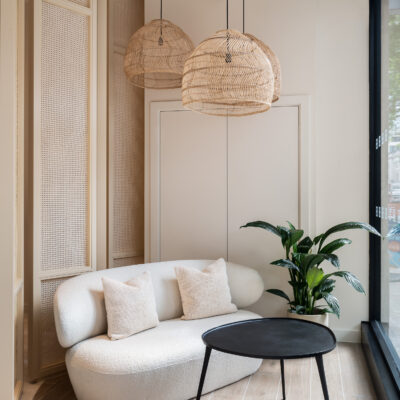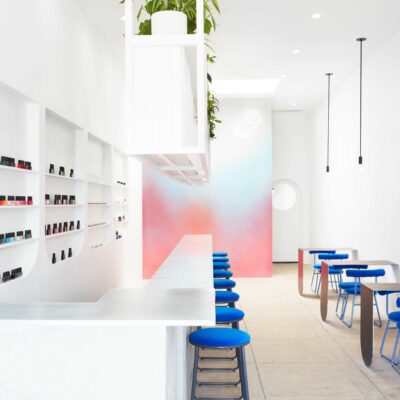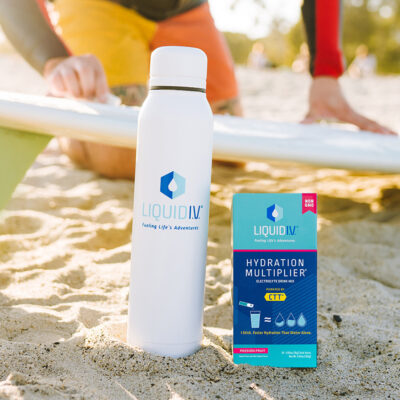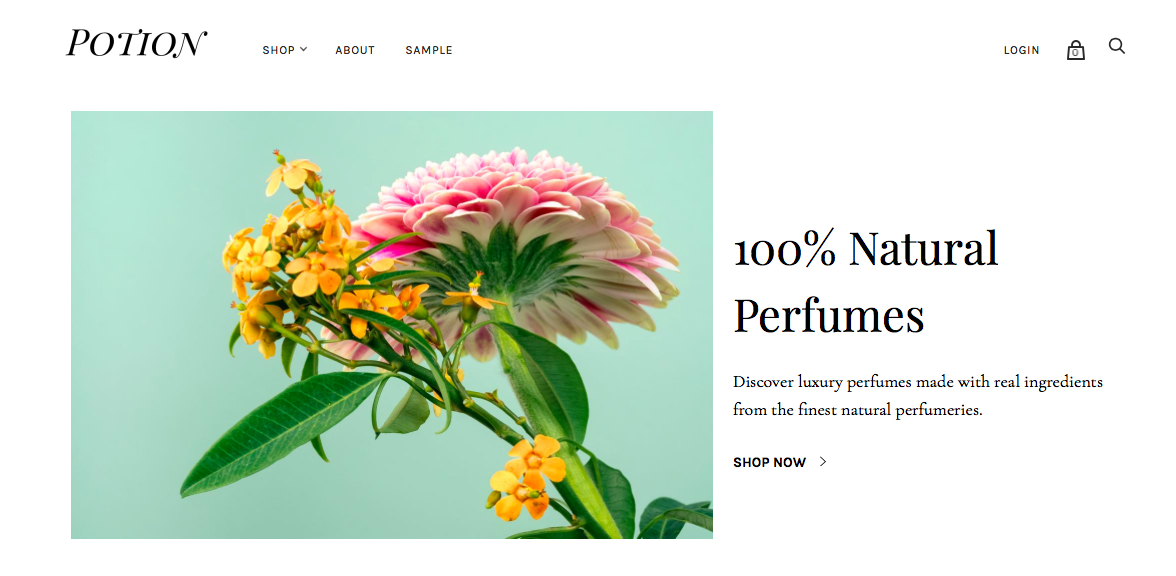
New E-tailer Potion Stands Apart By Concentrating On Natural Perfumes
Potion is natural perfumery’s new home on the web.
The emerging e-tailer is a synthetics-free zone stocked with around 40 fragrances from 11 brands, including Thorn & Bloom, Hiram Green, Florescent, Kahina Giving Beauty, Josh Rosebrook, Ojai Wild and Olympic Orchids. As demand for natural perfumes mounts, Potion is based on the premise that they don’t need to be relegated to the sidelines at stores and digital concepts dedicated to fragrance or beauty more generally.
“I did a bunch of research and concluded nothing like this exists, and it actually needed to exist. So, why shouldn’t I create it? We want to make sure people are informed about what’s in their products,” says Potion founder Dulma Altan. “Natural ingredients have complexity that synethetics don’t. They have a poetry and a proximity to the real, natural world that synethics don’t. All it takes is smelling real jasmine vesus synthetic jasmine to understand what natural perfumery can offer.”

To be considered for Potion, products have to be made from natural essences. They can contain beeswax, seashells, beach-harvested ambergris and honey, but not animal-derived musk or castoreum. Altan scoured the websites of brands she vetted for Potion to gauge whether their scents would be suited its lineup. If she didn’t adequately find answers on the sites, she sent perfumers five to 10 questions to dig deeper into their ingredient usage.
“Because perfumers are generally so passionate about their ingredients and their process, they are really excited to offer as much information as possible as far as they know. It’s not always easy to know. If you want to be a perfumer who knows a lot about your ingredients, you have to do a lot of homework. Suppliers may not be informative or transparent,” acknowledges Altan. “I commend perfumers who know a lot about their ingredients.”
In a segment often bedeviled by confusion, Trish Vawter, an advisor to Potion and the blogger behind Scent Hive, emphasizes Potion provides clarity. “It can be challenging to know whether something is 100% natural or not. Now, somebody can go to Potion and know the perfumes are 100% natural,” she says. “We aren’t taking a stance that you’re a bad person if you have synthetics in your collection. We don’t want to be a judgmental space, but, if you’re looking for 100% perfumes, you can come to our website and know what you’re going to get.”
Altan’s conversion to natural fragrances was catalyzed by her mother Altan Onon’s chronic fatigue syndrome and resulting multiple chemical sensitivity (MCS), a condition characterized by acute reactions to manmade compounds in the environment. Onon had passed her interest in perfumes, particularly those from Chanel, down to her daughter, but her health prevented her from indulging in that interest. Seeking fragrances Onon could tolerate, Altan turned to natural options. “I’m really close to my mom, and I wanted her to have perfumes she could love that were really high quality,” she says.
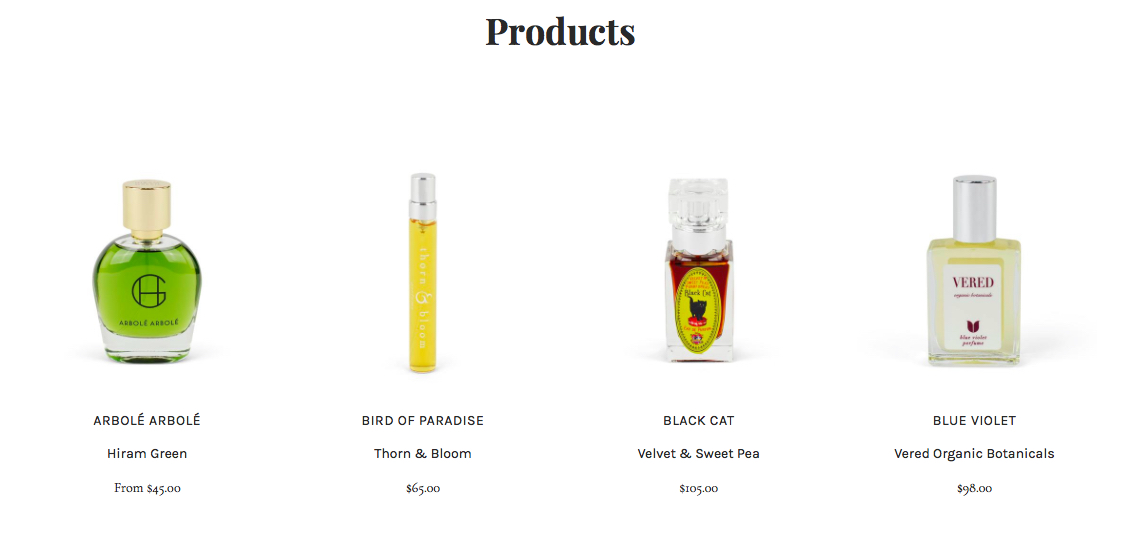
The difficulties Altan, a former digital marketing specialist at Google, faced in her search for high-quality natural perfumes convinced her Potion could fill a gap in the market. In November, she brought Vawter on board to help educate her and customers on the natural perfumes carried by Potion, and assist in choosing brands and scents that might resonate with those customers. Once a brand was chosen, Potion picked up less than 10 stockeeping units of each of its items. Altan estimates she spent $10,000 on inventory and website development to get Potion up and running.
“I intend to be very thoughtful about bootstrapping. I have friends who are venture capitalists saying, ‘Aren’t you going to raise money?’ I don’t think I have to now. I want to make sure I grow this without the pressure of having to make huge returns or scale quickly,” she says, adding, “We have to start small. We are not usually going to order every single product a brand has, but we also don’t want to only take two items from a brand that has over 20. We work with them to figure out how they want to be portrayed.”
Altan imparts there’s a chance Potion could cross into six-figure territory for first-year revenues, but she’s not shooting for a specific sales target. The e-tailer plans on testing a physical presence at pop-ups, and sampling will play an important role in its revenue generation as well. Sample packs feature three tiny fragrance vials for $17. Customers can create their own sample assortments or opt for pre-selected assortments in the scent categories lavish florals, sumptuous woods, sunny citrus, earthy orientals, and sweet and warm.
“Sampling is going to be really core to making the business model successful and profitable. How can we make the sample program enticing and accessible to encourage people to try and, once they try, encourage them to make full-size purchases?” wonders Altan. “I landed on $17 because I’m trying to make it as affordable as possible while taking into account the cost of the products, packaging and shipping. For the perfumers to make these products, it isn’t cheap. The cost of ingredients is a floor for how affordable the products can be.”
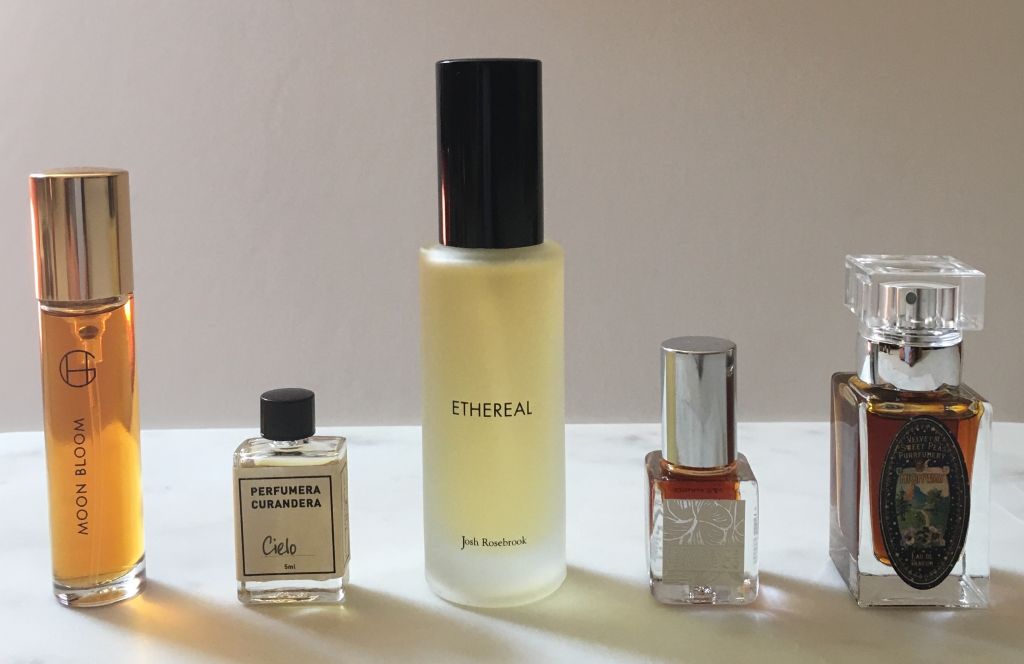
Potion’s primary objective at the outset is to share natural fragrances with as large an audience as it can reach. “We really want to introduce consumers to truly botanical perfumes so they can discover how unique and beautiful they are. They’re accustomed to popping into Whole Foods, smelling an essential oil blend and thinking it’s not special,” says Vawter. “The people behind botanical perfumes are true artisans who have been honing their craft in small batches. We want to share that with the average consumer who can then see how special they really are.”



